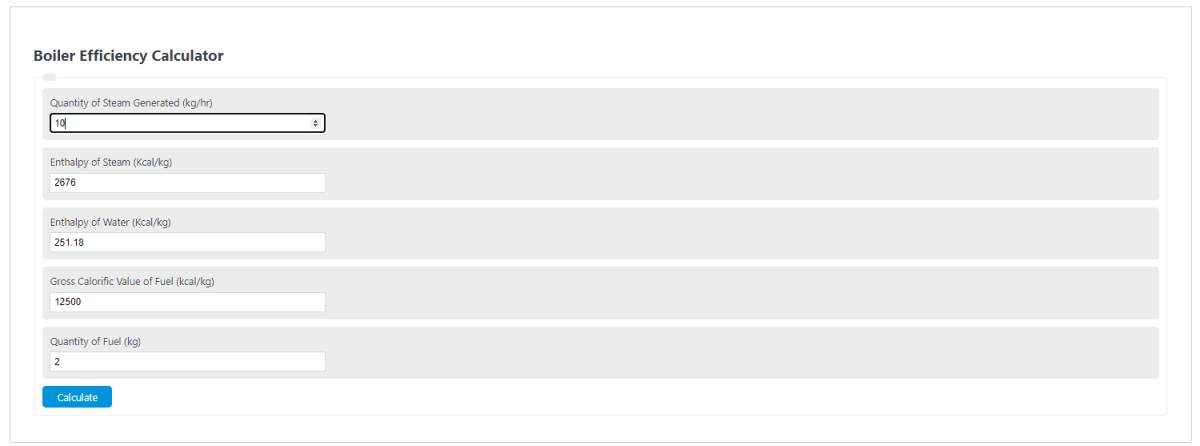Enter the quantity of steam generated, the enthalpy of the steam and water, and the gross calorific value of fuel to determine the boiler efficiency.
- Thermal Efficiency Calculator
- Carnot Efficiency Formula + Calculator
- Efficiency Ratio Calculator
- Pump Efficiency Calculator
- COP (Coefficient of Performance Calculator)
- CCF to Therms Calculator
- Steam Leak Cost Calculator
- Kettle Efficiency Calculator
- Boil Off Rate Calculator
Boiler Efficiency Formula
The following formula is used to calculate the direct efficiency of a boiler.
E = [ Q * (H-h) / (q*GCV) ] * 100
- Where Q is the quantity of steam generated (kg/hr)
- H is the enthalpy of steam (Kcal/kg)
- h is the enthalpy of water (Kcal/kg)
- GCV is the gross calorific value of the fuel (kcal)
- q is the quantity of fuel (kg)
Boiler Efficiency Definition
Boiler efficiency is defined as the percentage of input energy that a boiler can convert into output energy in the form of steam.
How to calculate boiler efficiency?
First, determine the quantity of steam the boiler generated. For this example, the quantity of steam generated by the boiler is 10 kg/hr.
Next, determine the enthalpy of the steam that is generated. For this example, we will use the enthalpy of steam at standard atmosphere = 2676 kJ/kg.
Next, determine the enthalpy of the water input into the boiler. For this problem, the input water is at 60 degrees celsius. At this temperature, water has an enthalpy of 251.18 kJ/kg.
The next step is to determine the gross calorific value of the fuel. This boiler uses natural gas to heat the water which has a calorific value of 12,500 kcal/kg.
Next, determine the quantity of fuel. The boiler in this example used 2 kg of natural gas to boil the water.
Finally, calculate the efficiency using the formula above:
E = [ Q * (H-h) / (q*GCV) ] * 100
= [ 10 * (2676-251.18) / (2*12,500) ] * 100
= 96.922%.
